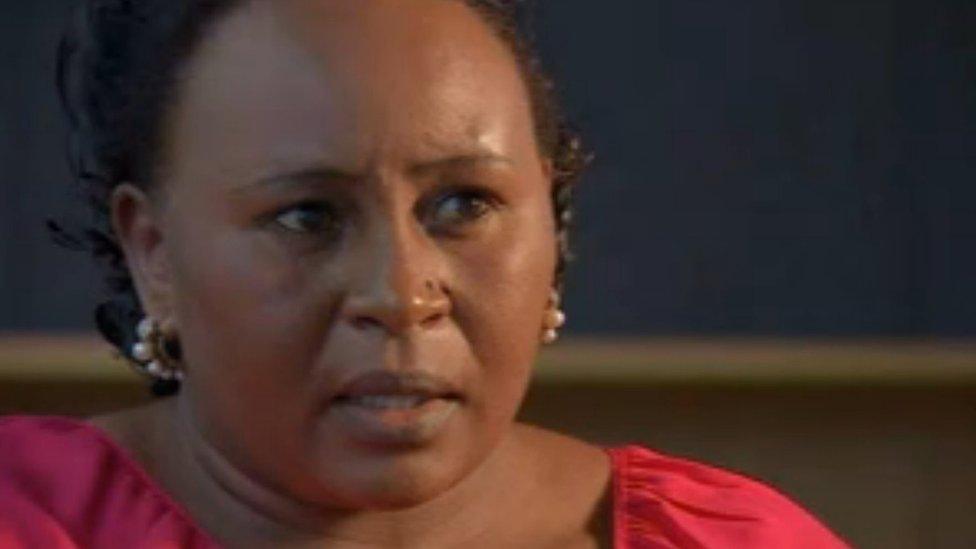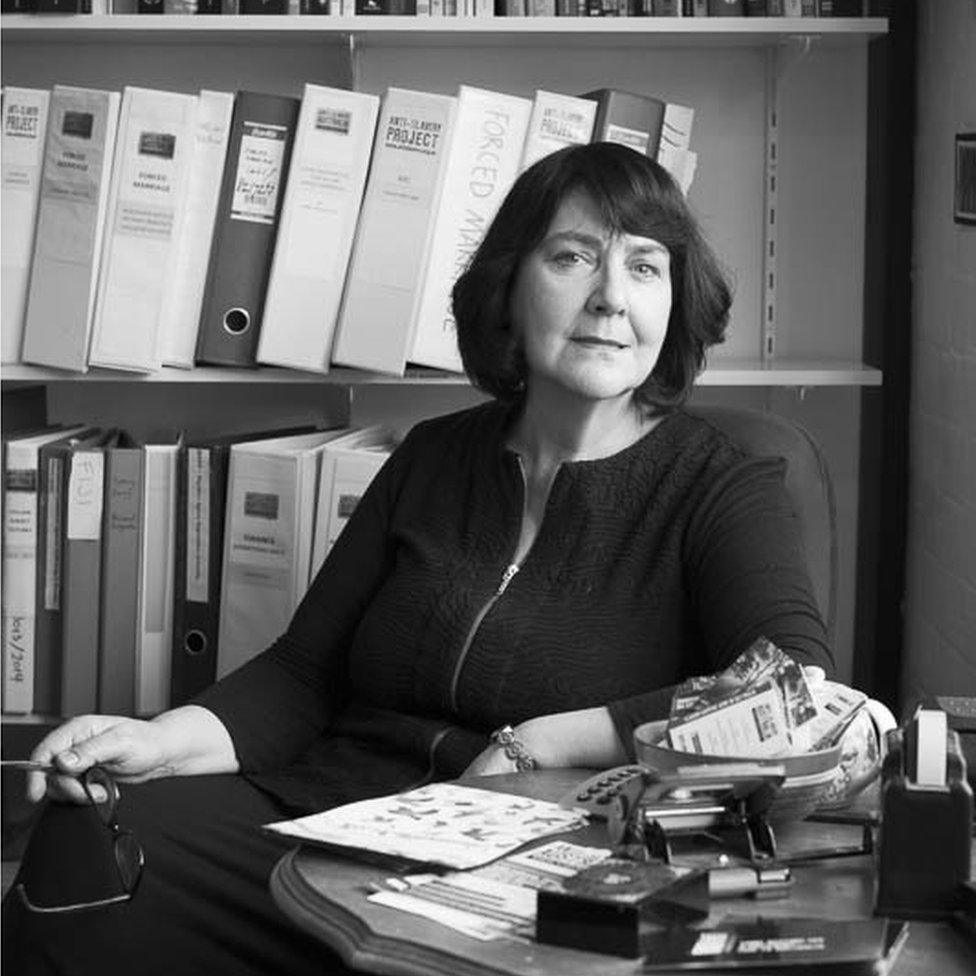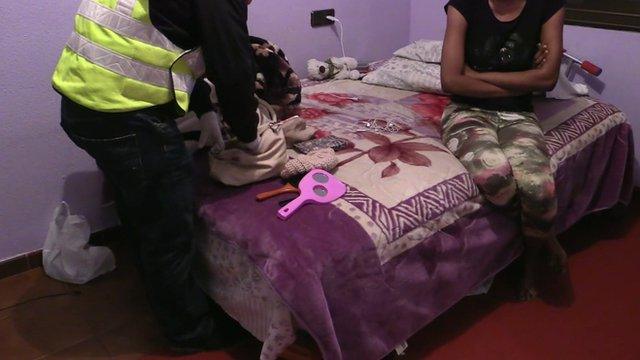A modern-day slave in Australia's suburbs
- Published

"Susan" says her employers came to control every aspect of her life
The Global Slavery Index says there could be thousands of people in Australia living in conditions amounting to slavery, but that despite a tightening of laws, prosecutions are rare. The BBC's Phil Mercer spoke to one woman about her experiences.
Susan's (not her real name) story began when the family who employed her as a housekeeper moved back to Sydney from east Africa.
She knew the family well and trusted them. They had always been kind and generous, so it was with great anticipation that the mother-of-three travelled with them.
Crucially, there was the promise of wages that would help support her children back home.
It was hot and humid when she arrived, and at the end of an exhausting day there was an ominous sign of what lay ahead when she says she was forced to sleep under a dining room table with the family's dogs.
"For me that was inhuman, because for them to have put me under the table that was the most disrespectful thing they ever done to my life," she says.
But in those early days she wasn't fully aware of the grip the family was gradually exerting on all parts of her life.
'Suburban prison'
"At first I didn't realise that I had been trafficked," she told the BBC at the headquarters of the Salvation Army, the charity that has helped her to slowly repair the damage.
Susan said she was held captive in an ordinary-looking home. It was her suburban prison.
"I wanted to go out and water the plants outside and they were out that day and I tried to open the door. It is locked. The next day the same thing happened," she explained.
There was further indignity to come when she pressed her employer for the money she was owed for many long hours of labour.
"She starts telling me, 'You are living in our house, you are having shower in our house, you are eating our food, so there is no pay'," Susan said.
Her two-month ordeal finally came to an end with a late-night dash to freedom after a confrontation with the family who had allegedly confiscated her passport. Escaping through an unlocked gate, Susan says she ran to a nearby house and pleaded for help.
"Immediately I press the bell for the neighbour. It was midnight. So I pressed the bell quick, quick, because I knew somebody has seen me through the window. Then the neighbour came out and she said, 'What is it? Can I help?' I told her to call the police."
When officers arrived, it was the start of another uncertain chapter in a remarkable story.
'Too scared'
She was eventually taken to Australia's first safe house for trafficking victims run by the Salvation Army, which says there are many more people like Susan.
"The Global Slavery Index estimates about 3,000 people could be experiencing slavery in Australia," said Laura Vidal, a project manager at the Freedom Partnership To End Modern Slavery run by the Salvation Army.
"It degrades every element of being a human being. People are reduced to property. It really is people having their vulnerability exploited."
Proving allegations of slavery is hard and many victims are too scared to speak out. There have been only 17 successful prosecutions for slavery and related offences in Australia since 2004, and most involved women exploited in the sex industry.
New laws covering forced labour and forced marriage were brought in three years ago to help victims in various sectors, including hospitality, agriculture, construction and domestic work.

Jennifer Burn, the director of Anti-Slavery Australia, says slavery occurs in other industries besides the sex trade
"The longer that I have worked in the area, the more I appreciate that the effects of these kinds of human rights abuses are long-term and devastating," said Jennifer Burn, the director of Anti-Slavery Australia and professor of law at the University of Technology Sydney.
"The pattern of slavery and forced labour is clearly changing, and if we look at the statistics provided by the federal police we'll see that there is a shift over the last couple of years and now there are more cases of forced labour outside the sex industry that are being investigated."
Australia set up an anti-human-trafficking strategy in 2003. Specialist federal police teams investigate slavery-related cases and there are support programmes and resettlement visas for victims. Officials say Australia has been a destination for people trafficked from Asia, most notably from South Korea, Thailand and Malaysia.
Following her ordeal, Susan was granted refugee status and now lives in Sydney, although it took several years to be reunited with her children.
"It was like a resurrected kind of life to have…my kids back again," she said.
"I remember my son shed tears in the airport and that one broke my heart because I left him when he was little and now he's grown. And my daughter, I left her when she was young and now she's (a) teenager."
Her alleged abusers were never charged. Very few are. Australian authorities say slavery is a complex crime and a major violation of human rights.
Campaigners believe that forced labour legislation introduced in 2013, which broadened the scope for investigations into slavery-type offences, should result in more criminal convictions.
- Published26 January 2016
